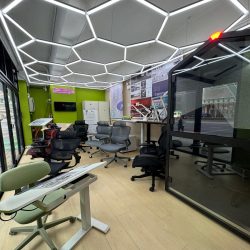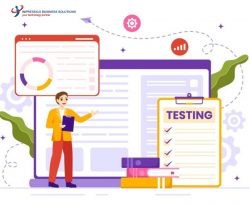Personalized Healthcare with AI-Driven Virtual Assistants
The integration of artificial intelligence (AI) into healthcare has revolutionized patient care, making it more personalized and efficient. One of the most significant advancements in this field is the development of healthcare virtual assistant. These AI-driven tools are transforming the landscape of medical services by providing tailored support to both patients and healthcare providers. In this article, we will explore how healthcare virtual assistants, remote patient care coordinators, and the Virtual Medical Assistant in Santa Cruz are contributing to a new era of personalized healthcare.
In the realm of personalized healthcare, the role of a remote patient care coordinator is crucial. These coordinators use AI technology to monitor patients’ health remotely, ensuring they adhere to their treatment plans. By maintaining constant communication with patients, remote patient care coordinators can promptly address any issues or concerns, thereby improving patient outcomes. They serve as a vital link between patients and healthcare providers, ensuring that care is continuous and responsive to individual needs.
Also Read: https://virtualmedicalassistant.us/virtual-assistants-for-patient-first-approach/
The Impact of Virtual Medical Assistants
Medical virtual assistants are specifically designed to interact with patients and provide real-time support. These assistants use natural language processing and machine learning to understand patient queries and provide accurate information. For example, a medical virtual assistant can help a patient manage chronic conditions by offering personalized advice based on their medical history and current symptoms.
Case Study: Virtual Medical Assistant in Santa Cruz
The Virtual Medical Assistant in Santa Cruz is a prime example of how AI-driven virtual assistants can enhance personalized healthcare. In Santa Cruz, these virtual assistants are used to address the unique healthcare needs of the community. They provide tailored health reminders, assist in chronic disease management, and offer mental health support. By delivering personalized care, the Virtual Medical Assistant in Santa Cruz has significantly improved patient adherence to treatment plans and overall health outcomes.
Benefits of AI-Driven Virtual Assistants in Healthcare
The integration of AI-driven virtual assistants in healthcare brings numerous benefits:
-
Enhanced Efficiency: By automating administrative tasks, healthcare virtual assistants free up time for healthcare providers to focus on patient care.
-
Personalized Care: Virtual assistants can provide customized health advice and reminders based on individual patient data.
-
Improved Patient Engagement: With 24/7 availability, virtual assistants ensure that patients receive continuous support and can access health information at any time.
-
Better Data Management: AI-driven assistants help in organizing and analyzing patient data, making it easier for healthcare providers to track patient progress and adjust treatment plans accordingly.
Challenges and Solutions in Implementing Virtual Assistants
While the benefits are clear, the implementation of healthcare virtual assistants also comes with challenges:
-
Data Privacy and Security: Ensuring the confidentiality and security of patient data is paramount. Robust cybersecurity measures are essential to protect sensitive health information.
-
Technology Adoption: Some patients may be hesitant to adopt new technologies. Providing user-friendly interfaces and adequate training can help overcome this barrier.
-
Integration with Existing Systems: Seamless integration with current healthcare infrastructure is necessary for the effective functioning of virtual assistants. Collaborative efforts between technology providers and healthcare institutions are crucial to achieve this.
Future Prospects of AI-Driven Virtual Assistants
The future of AI-driven virtual assistants in healthcare looks promising. Advances in AI and machine learning will continue to enhance the capabilities of these assistants, making them even more effective in providing personalized care. Future developments may include more sophisticated predictive analytics, deeper integration with wearable health devices, and enhanced patient interaction capabilities.
Conclusion
In conclusion, healthcare virtual assistants, remote patient care coordinator, and the Virtual Medical Assistant in Santa Cruz are paving the way for a new era of personalized healthcare. By leveraging AI technology, these tools are improving the efficiency and effectiveness of healthcare services, leading to better patient outcomes. As technology continues to evolve, the potential for virtual assistants to transform healthcare will only grow, offering a future where personalized care is accessible to all.























































